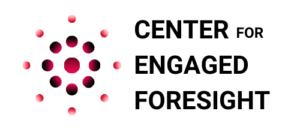Emerging Ways of Perceiving the Social Sciences
ISSC / 2013 WSSF Travel Grant Awardees for Early Career Social Scientists from the Global South photo © www.planetdirtproject.com Dinner and Waking up in Mont Royal So I arrived in Montreal, had a late dinner snack If I may and found myself deeply immersed in the exploration of global and regional social sciences futures the next day. Here, I met a couple of
Digging into Data and Digitizing the Social Sciences
John Willinsky, Stanford University, Curating and Digging into Data, Montreal, Canada, 2013 The surge of large data sets has changed the way we interpret and used data in research recently. Digging into data research tools as digital pundits called it has opened new opportunities for persons and systems to analyze massive data to anticipate the future, understand mainstream trends and gain insight
Plunging on Multidisciplinary Research
Plunging on Multidisciplinary Research: Notes from the 1st International Research Conference in Higher Education Higher Education Institutions (HEIs) in the Philippines are expected to be the major source of research-generated knowledge. With this assumption, the government, through some of its agencies like the Department of Science and Technology (DOST) and the commission that manages all HEIs, the Commission on Higher Education,
Who rules the world? A Call for Papers
“Who Rules the World?” A Call for Papers for a 2014 Special Edition of Foresight on Global Governance / Ruling Power Guest Edited by Professor Dennis R. Morgan Every research paper begins with a question. Of course, it doesn't always have to be a single question; sometimes, it's a set of related questions. Still, the single question, which may yet entail a set
Foresight Frontiers: THE UNESCO Future Lecture Series
On October 14, 2013 UNESCO will hold the second of the "UNESCO Future Lecture Series: Foresight Frontiers" and the UNESCO Future Seminar "Exploring the Attributes, Role and Organization of Horizon Scanning – With Case Studies from Africa, Asia and Europe". The event will be from 10:00 to 13:00 (GMT+2) at the UNESCO Headquarters @ Room IX; Address: 7, place de
Gaming Research: Digital and Futures Research Basics
Knowledge creation is rapid fire and the world wants it now. The digitization and automation of knowledge content, creation and distribution is changing the way we perceive and perform research. Many scholars today continue to test and create emerging research approaches to question existing realities and alternative ways of knowing. The mainstreaming of digital technologies, the emergence of alternative ways of
